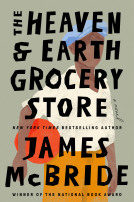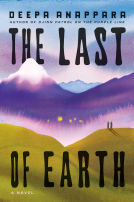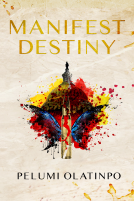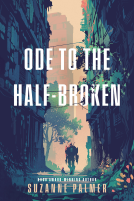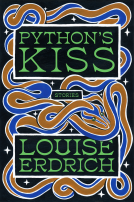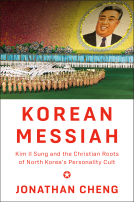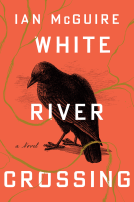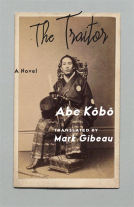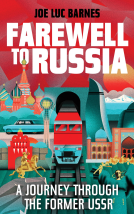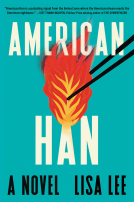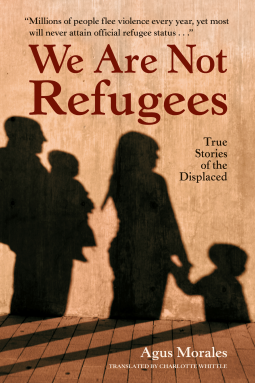
We Are Not Refugees
True Stories of the Displaced
by Agus Morales
This title was previously available on NetGalley and is now archived.
Send NetGalley books directly to your Kindle or Kindle app
1
To read on a Kindle or Kindle app, please add kindle@netgalley.com as an approved email address to receive files in your Amazon account. Click here for step-by-step instructions.
2
Also find your Kindle email address within your Amazon account, and enter it here.
Pub Date Mar 05 2019 | Archive Date Mar 01 2019
Charlesbridge | Imagine
Talking about this book? Use #WeAreNotRefugees #NetGalley. More hashtag tips!
Description
Never in history have so many people been displaced by political and military conflicts at home--more than 65 million globally. Unsparing, outspoken, vital, We Are Not Refugees tells the stories of many of these displaced, who have not been given asylum.
For over a decade, human rights journalist Agus Morales has journeyed to the sites of the world's most brutal conflicts and spoken to the victims of violence and displacement. To Syria, Afghanistan, Pakistan, and the Central African Republic. To Central America, the Congo, and the refugee camps of Jordan. To the Tibetan Parliament in exile in northern India.
We are living in a time of massive global change, when negative images of refugees undermine the truth of their humiliation and suffering. By bringing us stories that reveal the individual pain and the global scope of the crisis, Morales reminds us of the truth and appeals to our conscience.
Advance Praise
“With the keen eye and sharp pen of a reporter, Agus takes us around the world to meet mothers, fathers, children displaced from their homes. Now, more than ever, this is a book that needed to be written and needs to be read.”
Ali Noraani
Executive Director of the National Immigration Forum
Author of There Goes the Neighborhood: How Communities Overcome Prejudice and Meet the Challenge of American Immigration
Short version:
“Morales notes those who live on the margins are not even refugees, often seeking survival without the UNHCR, internally displaced people whose stories we need to hear, whose lives we need to remember. . . . a must read.”
Dr.Westy A. Egmont
Professor
Director of the Immigrant Integration Lab
Boston College School of Social Work
Available Editions
| EDITION | Other Format |
| ISBN | 9781623545321 |
| PRICE | $17.99 (USD) |
Average rating from 36 members
Featured Reviews
 Carissa S, Reviewer
Carissa S, Reviewer
We are not refugees 4.5⭐️
This showed Empowering bravery and courage for those who had to flee, they were refugees but for those that survived and now thrive... they are no longer refugees.
There was something so beautiful about the pain and saving their stories were brought to life and made me feel like i was watching them.
"Millions of people flee violence every year, but most will never attain official refugee status, whether in the United States or anywhere else."
"But to come closer to understanding their situation, we must listen to them speak not only of hardship, but of hope; not only of moments of crisis and escape, but also the tedium of waiting, and of uncertainty."
He had so many statements that just pulled me in and made see into their world.
These are stories of different refugees and how they survived and how they live now after everything they have been through.
Our first refugee is a young boy. He was along and tortured and forced into a detention center. This boy was put through hell right away and he had no one fighting for him. To help free him
"tried to resuscitate him for half an hour, but he died of pulmonary edema, according to his death certificate. If Ulet had died in Libya, no one would ever have known. I wanted to write a book about people who, like Ulet, are fleeing war, political persecution, and torture."
We get alot of facts about refugees and the number of people across the world that went through different types of pain and suffering. This book was difficult to read because personally I dont like to see others in pain. Im not vein i know the pain that lies in everyone and i know that there are horrible things happening all over the world. I know that there is poverty and detention centers i know these things happen. Lucky I don't have to witness it myself so seeing her perspective and her experience was heart warming and heart breaking.
"W hy do we kill each other? What kind of reason would drive you to kill? Would you take up arms for your country? For your values? For a flag? For your family? Have you ever killed anyone? Would it be easy for you to kill? Do you think the full force of the law would be brought against you? Do you have weapons in your home? And what if you did? What are your limits? Would you kill if everyone around you were doing it? Do you think your neighbor could kill you? Or any of your loved ones?"
"Do you believe walls are necessary? What about borders? What should be done about population influxes? Do you think they should be controlled? Do you feel threatened by those seeking refuge? Would you risk your life and those of your children by boarding a migrant boat, even if you didn’t know how to swim?"
Only the fresh eyes of the neighbors, somewhere between fearful and indifferent, excited and cautious, betray that Osama bin Laden is dead, and they don’t know what to do"
A doctor is more dangerous then a fighter. That stuck with me. Let that sink in for a moment and just think. We think of a doctor as someone who is helpful and a fighter is someone that protects or hurts depending on the situation. I thought it was just really interesting to view as doctor as dangerous but also all to true.
“Yes, I’m feeling much better. I was in the hospital for a long time. Before, I felt like I was in jail. Now at least I’m with my family.”
Akram Jabri, sixty years old, still can’t believe it. He used to have a soap factory in Aleppo, the economic capital of Syria. He made a lot of money. But his factory was destroyed by fighting between the Syrian regime and the armed opposition. He left Syria with his wife, two children, his son-in-law, and three grandchildren. He paid smugglers to get to the Greek island of Lesbos by boat.
Their lives for those who got to have a life after is so sad and so beautiful. He got out.
The other effect: why would they need our help? They have money; they pay the smugglers; they’re far from helpless. Why don’t they sell their phones, their belongings? There are people in greater need. As if it mattered more to the people making that journey to eat every day than to orient themselves and communicate with others farther north, with those who know which borders are being closed and can warn of the dangers; as if a compass weren’t what you need most in a desert."
I thought that statement summed up what people think or dont even think to think becuaseso many people take everything for granted and then you read stories like this and see that we are spoiled humans and need to take a step back and see if there is anything we can do to help just around home even.
The woman is from Afghanistan. I can’t understand what she’s saying since I speak neither Dari nor Pashtun; perhaps I don’t want to understand what she’s saying."
I didnt even take into account that the language barrier makes things even more difficult.
This is a story of many different refugees and how they made it or how they died. We start with a young boy who escaped and detention penitentiary and made it to freedom only to die due to his injuries and sickness soon after being free. Its not what we want to hear. We want to hear that everything is okay, we want reality to be fiction. We want to hear that the little boy escaped and grew up and lived to tell his grandchildren about his journey. But Agus showed us the truth and the truth is sad and hard to read at times but im glad someone was able to put their experience and feelings about this down on paper.
We follow other stories, some happy, some not so much and we follow Agus and how she delt with everything while being right in the middle of it.
-.5 The only thing that slowly the story down was the political information facts. Yes I do think it is important for us to know whats going on but at times it was a bit much.
Thank you so much to imagine via netgalley for sending me an ARC copy of We are not refugees by Agus Morales. This will be available on March 5th, 2019. All opinions are my way.
Its a long time from now but it will be worth the wait.
 Geoffrey S, Librarian
Geoffrey S, Librarian
The book delivers exactly what it promises - voices of the modern-day displaced from all over the world. And in a time where too many people are all too willing to brush off, ignore, or fear those driven away from their homes, "We Are Not Refugees" is exactly the kind of book we need far more of.
I look forward to getting this added into my library's collection.
i Have not read a book as powerful as this one in a long time. The author brings you inside so that you can feel the emotional roller coaster ride that you are on once you start reading this book. I really cannot even put it into words. If you read this book, you will understand what I am trying to say. The authors writing ability is amazing. Hold on while reading this one..... you are in for the ride of your life.
5 stars ⭐️ out of 5
Thanks to netgalley and the author/publisher for giving me the opportunity to read this ebook for my honest review.
 Calzean J, Reviewer
Calzean J, Reviewer
There are numerous books covering refugees of various failed States, wars, gangs and other acts of brutality. Sometimes like [book:City of Thorns: Nine Lives in the World's Largest Refugee Camp|25659407] they look at one specific refugee camp, others cover the journey or the reasons for flight. In this new book, the Spanish author looks at the causes of flight in three war zones (Syria, Afghanistan and DRC), the camps they find themselves at (Jordan, South Sudan and Mexico), the routes they travel (Mexico, Mediterranean Sea and across Europe), and what happens when they arrive (Europe and India). He tries to put a label on these refugees, displaced persons, exiles, asylum seekers or whatever. In the end he realises that they are people who do not want labels and do not want to be where they are or where they are going to. His book is full of interviews of sadness, resolution, resentment, terror, trauma and occasional a little hope. He probably has not achieved his aim in writing this book as the scale of the human tragedies cannot be truly understood by those living the life of security, affluence and ignorance.
What is it like to be a refugee? Human rights journalist Agus Morales tries to answer this vivid question through this book. In the process, he defines a few other terms for the refugee population, viz. migrants, internally displaced persons, and returnees, and explains how they are one and the same, even though laws/rights significantly vary for each of those groups.
The book gets one thinking whether the refugees are really refugees, or are they just non-refugees, as the title says. Through short interviews of the people displaced due to war, the author also debunks quite many myths surrounding the refugee population, mostly the ones formed by people who have never been in such a situation.
The heart touching stories shared by people who have gone through the worst of times in order to survive makes one think of the degrading state of humanity as a whole, and the tough political stances taken by those in power or otherwise. There are success stories as well as those of infinite failures seeking asylum, but the trifle success rate makes one's heart pound. Truly privileged are those who'll never have to go through all that a refugee does.
I would like to thank the author and the publisher for the ARC.
Verdict: Highly recommended.
 Ellen A, Educator
Ellen A, Educator
We Are Not Refugees is an account of some of the movements of people fleeing from war and other kinds of violence. The title comes from the fact that many of them will never achieve the official status of refugee, mostly because other countries (particularly western ones) don't want to let them in. Others don't want the status, don't think of themselves as refugees but as people longing to return to their own homes, of a time when their homes will again be safe. They are all known as Internally Displaced People (IDP) a label that does not begin to describe their suffering.
Morales is a journalist who has interviewed people who are part of these movements. Many live in refugee camps under appalling conditions. A few of the stories are success ones: people who have successfully relocated, been accepted as citizens of other countries and are making new lives for themselves, through hard work and determination. But most of the people are still struggling. Morales leaves us with the impression that many--or most--of them will never have a home.
The places he goes to include the Central Republic of Africa (which he describes as the hollow center of Africa, a place unseen and uncared about by the rest of the world), Syria, several countries in Central America, and Afghanistan. He concludes with a moving study of the Tibetan community in exile: a group of people struggling to keep their culture, traditions, and religion intact even though many have never even been to Tibet, have been born and raised in exile.
Morales is often in the center of the action, boarding buses with refugees, participating in a boat rescue of migrants escaping on small boats in danger of sinking. He clearly has a strong background as an involved journalist and cares passionately about his subject.
One thing that Morales repeated stresses is the need to see the migrants as people first, to not let their humanity be lost behind their condition, behind what they have been forced to do. By thinking of them as immigrants, refugees, or migrants first, it is easy to lose sight of their suffering, to distance oneself and see them as "other", people not like ourselves, people who often has lives like our own before violence came to their countries or who would, given the opportunity, be just like we are. Thinking of them only by their current situations allows us to more easily ignore and reject them.
Morales provides much valuable background information about the situations in the different countries and camps he visits as well as painting a strong picture of how people are currently coping. However, the book is strongest when he allows the people to speak for themselves. Listening to their voices is a powerful experience and the best way to see them as he wishes: people first.
This is an important book for our times. There are so many refugees and "non-refugees" at this time and many more are expected as wars continue and spread. It was a painful but enlightening book.
I am grateful to NetGalley, Charlesbridge Publishers, and Agus Morales for providing me with a free copy of this book in exchange for an honest review.
 Vicky p, Reviewer
Vicky p, Reviewer
This is an important book that deserves to be read widely. Spanning four continents (Asia, Europe, Africa, Central America) and an impressive multitude of countries (Afghanistan, Pakistan, Syria, Turkey, Jordan Greece, Libya, South Sudan, Democratic Republic of Congo, Central African Republic, Mexico), the book tells the story of the displacement of unprecedented numbers of people in conditions that deteriorate yearly for refugees, asylum seekers and migrants. Morales tells this story with humanity and humility. His aim is to allow the voices of the displaced to come through – not to superimpose his own preconceptions or prejudices upon them but try to hear, to bear witness and in turn transmit to others.
The book itself is the product of years of reporting from areas badly hit by wars and/or humanitarian catastrophes. As the title makes clear, it both *is* and is *not* a book about refugees. One of Morales’ key points that is repeated often in the course of the book is that only a small minority of people who find that they have to move (because of lethal and catastrophic wars, e.g. in Syria, or because it is impossible to continue to live safely in their countries (e.g. Honduras) are actually refugees. Many of them do not perceive themselves as refugees, perhaps because in their country of origin they were respectable, well-off people. Others because - after crossing into neighbouring territory (e.g. from the Central African Republic to Chad) and then attempting to go back – they found they had no identifiable status and could neither lead a normal life nor lay claim to aid.
In telling the stories of these (non-) refugees Morales attempts to debunk various false dichotomies, such as for example the one between (deserving) refugees fleeing wars and (undeserving, economic) migrants who are out to make a quick buck. His wonderful essay on those fleeing central America because they constantly run the risk of being robbed, beaten up or killed ("The Spirit of the Migrant Shelters, Ixtepec-Mexico") makes that crystal clear. He also clarifies how difficult it is to tell between the victims, the smugglers and the gang members who take advantage of the plight of desperate people; as a journalist, he says, he has to be suspicious and raise the questions that his audience wants answered, as a human being, however, he feels that his job is not to pass judgement or categorise but to bear witness.
The book is divided in five parts: 1. “Why are they fleeing?”, 2. “Flights: Who are they?”, 3. “The Camps: Where do they live?”, 4. “Routes: How do they travel?” and 5. “Destinations: When do they arrive?” Not all the essays are of uniform quality, however some are real gems that I think everyone should read. The chapter on “The Forgotten Lake Kivu” touched me deeply with its combination of factual analysis and personal self-examination. Consider the following excerpt:
”By focusing on the logic of war, do we run the risk of dehumanising the suffering of rape survivors? Of representing it as just one ore ingredient – normal, natural – of conflict? […] Of speaking only of “victims”, and not of “survivors”? Among the Kivu, yes, I found stories of villages being attacked, militia’s strategies to destroy the enemy […] but mostly I saw something much more obvious, to which little attention is ever paid, but which has a profound impact on the lives of thousands of women: rape is a weapon of forced displacement. Not even a bombing is so effective at ousting entire villages. I’ve spoken to Syrian refugees who wanted to go back to the inferno of Aleppo, I’ve spoken to Central American migrants who did not take a dim view of returning to neighborhoods controlled by gangs, but I haven’t spoken to single Congolese woman who’d been a victim of sexual violence during an armed attack who wanted to go home” (pp. 93-4)
This is the strength of We are not refugees: Morales is not simply doing a job reporting on war and human movement but at each moment he is ready to question his own motives, volunteer his thoughts and analysis, and offer his interviewees not only an ear but the sympathy of a full human being who relates to them both during the interview and after the interview is over.
I recommend this book to anyone who is interested to know more about refugees/displaced people either from a political/sociological point of view of from a human perspective. Those considering to join/volunteer for an NGO should read this book; even if they’re already familiar with certain regions of the world, it’s likely they will find in this book a wealth of information and humanity. Which leaves out those who see refugees as undeserving scroungers that need to be sent back as soon as possible. What to do about them, how to open their eyes and ears to what’s happening in the world today? I frankly don’t know how to answer this question but I hope that somehow Morales’ book will find its way even to those.
Thanks to Netgalley and the publisher for providing me with a digital advance review copy.
 Zine S, Reviewer
Zine S, Reviewer
I still wonder why I picked this book to read from those suggested for me by NetGalley. A book about refugees? That sounds fun. Then I remembered that several of my ancestors would have been refugees if they had wanted to go home rather than immigrate. Those who fled Islamic radicalism and government exclusion. These are my roots, and I have a long forgotten connection to these people today.
Morales invited me into the lives of these people, like me, running with their families from their homes. They have no desire to run. No desire to leave. They love their homes, countries, and neighborhoods. War has forced them to leave. Their homes were taken from them. And, they have nowhere to go. Closed borders, distrust, and dangerous routes have made them residents of inhuman "refugee" camps.
These are not stories that are heard in the news. These are not stories that are told by politicians in the United States. These are people that I have been shown to fear. These are the people that the United States, and by extension, I, are preventing from protecting an providing for here; the land of opportunity; the nation of immigrants.
What is truly interesting about this book is that Morales so pulled me into these lives that I, a right-center individual, would want to bring as many of these fleeing people as possible into my country, into my town, into my house.
 catherine h, Reviewer
catherine h, Reviewer
Heartbreaking. I just spent the winter reading about refugees during and after WW2. So sad that our world still hasn't changed so very much. This is a must read book about today's refugees . It's pretty comprehensive. It covers all the refugees from every continent and why they are displaced.well-written and well researched.
 sara m, Reviewer
sara m, Reviewer
A really gripping and powerful read. Morales weaves the story together perfectly with captivating writing. A great read.
We Are Not Refugees by Agus Morales was hard for me to read because it depicts the extreme pain of people seeking safety from war, gang violence, extreme poverty, etc. Although safety is their main concern, I think they are also seeking a home where they can permanently settle and live a normal life. The author demonstrates that these people are more than refugees. They are mothers, fathers, daughters, sons, sisters, brothers, etc. This is an important book that I think should be read by everyone, especially in light of what’s happening on our southern border right now. I highly recommend this very important book.
 Lena Marie R, Educator
Lena Marie R, Educator
We Are Not Refugees by Agus Morales is a powerful book that prompts lots of questions and emotions from the reader. This book provides a window into the lives of those willing to risk everything in order to have a better life. The author shares stories of people fleeing their country for various reasons. This book is relevant and is so appropriate for opening a discussion on immigration and our recent political stance. It makes you see the human side of this issue – they are people first. It made me question what it would be like to be in that situation. Needing to flee our country for whatever reason and trying to find safety and comfort in a strange land. This is not something you can even begin to imagine happening yet so many experience this daily. Very impactful and important read! This book left me thinking long after the reading ended.
I received an advance copy of this book from Net Galley in an exchange for an honest review.
 Sam L, Reviewer
Sam L, Reviewer
Read More Book Reviews on my Blog It's Good To Read - Link: http://ebookwormssite.wordpress.com
Summary:
Approximately 65 million people are considered displaced, as of today. This number is roughly comparable to the total population of the United Kingdom, or all of California and Texas combined.
This book attempts the impossible, to put a face to the refugee, to put a name on the internally-displaced person, and a story behind the suffering. It aims to rise above both the alarmist rhetoric as well as challenging the belief that all refugees are essentially the same, to give brief but comprehensive and indicative stories of the people themselves, the displaced, by the people themselves.
Main Characters:
Agus Morales is the main character, as through his eyes we see the stories unfolding, from the current Syrian conflict, to the almost-forgotten Afghan crisis, to the ignored parlous state of affairs in central Africa, and the vulnerability and helplessness of people making the hazardous trip through central South America to the Mexican border. Hazardous is actually too soft and small a word for the experience of all these people, when you read of the stories of kidnappings, rapes, tortures, beatings, exploitation, and the myriad other ways people can inflict pain and misery on each other.
Plot:
The book covers people and events in four continents, (these being Europe, Asia, South America and Africa). With 65 million people directly affected, the list of countries involved is almost too numerous to count – we are currently familiar with Syria, but the Central African Republic, the Democratic Republic of Congo, Mexico amongst others all have stories encompassing equal amounts of horror and tragedy.
There are five sections to the book, covering off: why people leave their home, who are the people making these dangerous journeys, how do they survive when they reach a camp, how do they get there, and finally when do they arrive? He bookends this very nicely by inviting the reader to imagine how she/he would manage, if they had to leave everything they knew, and go to a country that didn’t speak their language, and treated them as a huge burden? He challenges us when asking what would drive us to kill our neighbour, or them us, and what would our limits be?
This book attempts to highlight what has happened, and is continuing to happen, to displaced persons. Refugees, by the way, is a word that does not include everybody – people who have left their own town due to conflict but remain within the borders of their own country are “displaced”, and as such “rank lower” in terms of media coverage.
Throughout the author’s experience, and he has been reporting on this for well over a decade, he finds a large number of the displaced people were relatively well-off “back home”, with many being highly qualified, and/or having run their own successful business. One even had a massive factory. These were the people with the wherewithal to pay to be smuggled out of the country. They were not in any sense living in the lap of luxury, it was just that their path was made slightly easier by the ability to grease some palms along the way. By contrast, for those without the means, the book opens with the harrowing true story of a young boy who was alone, friendless, tortured and raped, and finally who died on board a rescue ship, in sight of freedom. The point was made that, had he died in Libya, no-one would ever have known he even existed.
Though the stories are necessarily short, and a lot of people did not want to either be interviewed or give their real names for fear of reprisals, the author gets to the point very quickly. There is no overt moralising, for no-one can dispute the suffering that is involved. No privileged person, of whom I am one, can possibly realise the depths these people have plumbed, in order to gain safety for themselves and their families. A particularly brave doctor in Aleppo, Muhammed Abyad, stood out for me, as he risked death every day for standing up for his patients, and for treating every one of them equally, in spite of frequent warnings and threats to his life.
What I Liked:
- I liked how the author tried to give us the bigger picture, by describing the camps, and giving a deeper context to the huge movements of people.
- I liked the people telling their own stories, direct and unadulterated, without the prism of a particular media source. They were honest and heart-rending.
What I Didn’t Like:
This was a hard-hitting piece of work, based on fact and the author’s own direct research and real-life experience, and one can only respect the danger to which he exposed himself, to bring us these stories.
Overall:
The author makes a good fist of being objective, but his humanity does come through, and between the lines you feel his outrage at how lives are commoditized. He has done this work for years, and while the faces change, the eyes always tell the same story. Most people don’t consider themselves refugees, and most only want to go home, to pick up the threads of their old lives in peace. He readily admits there are bad people making the journey as well, but the vast majority do not want to be there, and are only doing so out of dire need.
The reader is left to make up his/her own mind, as the author lays out cogent facts and statistics to be digested. This is not a dry narrative, as the humanity in each story pervades the whole book. There will always be those who decry the facts, call refugees “invaders”, and seek to be alarmist and so on.
For me, I was left thinking about what I would do. As a parent, I would not let my young child go into the shallow end of a swimming pool without the inflatable armbands. As a parent, I was reading about Afghan women, who being from a land-locked country had never seen the sea, taking their similarly-aged children out on a rickety boat, taking eight days and nights to cross the notorious Mediterranean Sea. It brings home to me the hard, punishing desperate situation these people are fleeing from, and gives me a deeper understanding and compassion.
An important, informative, harrowing book – definitely recommended.
Acknowledgements:
My thanks to the author and to NetGalley, for giving me a free copy of this book, in return for an honest and objective review.
 Stephanie B, Librarian
Stephanie B, Librarian
I believe that this is such an important book to read, especially in today's crisis of humanity. Agus Morales talks with the people who lives have been interrupted by war, drug violence, and collapsed economies. The major consensus among the displaced population is they just want to go back to their homes but they cannot. People risk their lives trying to better. Those who are traveling from Central America through Mexico to get to the United States risk run-ins with criminals, rapists, traffickers and other threats. People fleeing through the Mediterranean risk drowning or being attacked on the open sea. Syrians head for Turkey to avoid being bombed or shot. However, bullets in these places are not the only things causing death. Hospitals are being targeted by bombs and ransacked. Doctors are murdered. People cannot get medical care they need. Basic human rights are being neglected or stripped away. Babies are being born on boats or as I come to call it, the land of the in-between.
I will warn you this book was hard to read. Reading the experiences from the mouths of the displaced was heartbreaking. We need to ask ourselves... what would we do if we were in there position? How far would you go for your friends, family, and children in trouble? We need to look at the origins on why people are on the move and figure out how it can be rectified.
I also learned something else reading this book. Just because they are displaced does not mean they were poor. There was an interview with a man who owned a factory in Syria that made him 1500 a day. It was destroyed during the fighting. Him and his family are currently on there way to Oslo but would rather go back to Syria to rebuild their lives. So when you see a refugee with a cell phone don't assume they don't still need help. That is a ridiculous assumption and one I will strive to keep in mind for the future.
Thank you Netgalley for providing me with early access to this book in return for an honest review.
 lani s, Reviewer
lani s, Reviewer
This could not be a more timely and apt book as the word “refugee “ has become intertwined with migrant and various other permutations of political prisoners and victims of violence.Morales is an outstanding journalist who uses the stories of internally displaced people or victims from the central Republic of Africa ,Syria, Central America, Afghanistan and Tibet to help tell the narratives that litter the landscape of these people who are affected by unspeakable tragedies. Because there were so many stories , this non fiction expose runs the risk of watering down its power than if just a few countries were focused on more in depth. However it is the commonality that is displayed in all of these narrations that allows the true capacity for evil to rise to the surface.
 Jade H, Reviewer
Jade H, Reviewer
Refugees, migrants, internally displaced people = all human beings. I’ve said it before and I will say it again: nobody flees their homeland with only what they can carry on their back unless they have to. It’s natural to seek out a safer, better place for our families. Those of us who have never been in a situation where we saw no other choice but to run shouldn’t be allowed to decide who is more “worthy” of safety, who “deserves” to be called refugee rather than migrant, whose story is more “important”. But we still do.
We Are Not Refugees is a necessary and very timely read: in these days where a president blanket bans all people from several countries from entering the US, and goes to great lengths to build a wall between the US and Mexico, where European countries are talking of migrant “crises” and closing borders rather than actually dealing with people as humans rather than numbers, we NEED to read these stories.
Agus Morales is a human rights journalist who has spent many years traveling to countries in conflict, talking to people who have been displaced because of war, conflict, genocide, hunger, and poverty. He wrote this book not just to highlight that there is not one “refugee” profile, but mainly to highlight the fact that these people are all human. The book is divided into 5 parts, covering areas such as the why’s, and the how’s and the where’s, and takes us to many different places, such as Sudan, the DRC, Syria, Central African Republic, Central America, Tibet, as well as the Mediterranean Sea.
What happens when all you want is to go home, back to your life of before, but there is no possibility of “before” ever coming back, and/or of your home existing anymore?
There are many important stories in this book, some that will remain with me forever I think, and there are also some extremely important subjects that must be raised. Why are some people called refugees while others are called migrants? Why are different of groups of refugees highlighted when others languish in camps in the dark? Why do we still fear the “other” when the “other” is another human being just like us?
Agus Morales doesn’t hesitate to lay all of the stereotypes on the table in order to debunk them, and doesn’t whitewash the truth either. He tells the stories exactly how he sees them, and expertly mixes personal anecdotes, stories from people he encounters, and hard facts and truths together to create a compelling and heartbreaking read. I really appreciated the fact that he brought together people fleeing war, people displaced in their own countries with no possibility of returning to their homes, and those who have been exiled for one, two, even three generations to create an overview of what it means to be displaced, of what it means to be a refugee but not a refugee all over the world.
Thanks to Netgalley and the publisher for the advance copy of this book!
 Margaret W, Reviewer
Margaret W, Reviewer
An amazing story from a very brave journalist, who travelled from one refugee camp to another. The descriptions of the camps and stories that he relates brings to life atrocities that one can barely imagine. The destruction of war, luting, greed, hunger and torture. So many refugees or displaced persons as he often called them, had seen their families, homes businesses and towns destroyed. The living conditions in the camps are appalling, cramped and lacking food, water and other basic necessities. Most people are forced to leave their homes and countries in order to survive.
They dream of a better life, but will it ever happen? Many can’t wait to get back to their homeland, despite the fact that everything they had has been destroyed. A very grave story, but one I recommend you read. Well written.
Thank you to NetGalley and the publisher for the review copy of this book! It’s on sale March 5th.
We Are Not Refugees was an important and very interesting book to read. Agus Morales is a journalist who has spent years traveling the globe, interviewing people who’ve had to flee their homes.
What has come out of those travels are stories and stories and stories. Stories of people who do not think of themselves as “refugees,” because the world has cast “refugees” as poor, destitute, helpless beings. And many these people came from a home where they once lived comfortably, once had a livelihood, once (perhaps still) had a family.
These people are people, and all they want is a safe place where they can go back to being productive members of society.
I think the point that really stood out the most for me was about their smartphones; many people look at these people who come with Nikes, and iPhones, and other consumer goods from our world, and that doesn’t jive right. So they say, “If they’re so poor, why do they have iPhones?”
And to that Morales says: As if a map isn’t the one thing you need when you’re lost. And he says: If I had to flee my home, my belongings, and my family because of danger, the last thing I’d leave behind would be my cellphone.
And despite the valiant effort, I still found it so, so hard to tune into these stories — to keep myself from viewing them at a distance. It’s hard to look at that kind of pain and suffering and feel it consistently. So I think the only thing I can do here is to keep reading stories like these — more and more and more. Maybe then it will stick.
 Annette J, Reviewer
Annette J, Reviewer
A compelling account of the lives of displaced people, those who have been forced to flee their homes due to war and oppression , compiled by a journalist who has travelled to the sites of some of the worlds largest conflict zones such as Syria, Afghanistan and the Congo, as well as the largest refugee camps in Jordan, and the exiled Tibetan parliament, and spoken to the men and women whose way of life has been turned upside down. Using their individual stories and experiences he illustrates the problem on a global scale. By showing us that these people are just that, people, not just numbers and statistics, he seeks to put a human face on the issue, an issue which has become something of a political hot potato in numerous countries around the globe. The title reflects the attitude of these displaced people, they often do not see themselves, or refer to themselves as refugees. It also highlights the fact that many people are not considered refugees, but rather Internally DIsplaced Persons, if they have not left their country of origin but merely been forced to migrate within its borders .
A powerful, impactful and important book.
I read and reviewed an ARC courtesy of NetGalley and the publisher, all opinions are my own.
 Chrissi A, Educator
Chrissi A, Educator
Thank you Netgalley and Charlesbridge for letting me read this ARC in exchange for an honest review. After reading this title, I wish I had been able to get to it sooner!
"Many do not identify with the label refugee - because they haven't obtained asylum, because they don't want to become refugees, or simply because they don't want to be labeled at all."
Refugee, Migrant. IDP. Immigrant. Do we really understand these terms, and do we really understand who the people are that swell at the borders, live in unimaginable conditions in crowded camps, or commit desperate acts to cross into a safer country? I would argue that there is an iceberg, and we only see the very tip of it; the rest is below the surface, the waiting, the not knowing, the fear, the do-I-stay-or-do-I-go mind trap ... and even if someone is granted asylum - will they actually go, knowing they make have to leave family behind?
Morales explores not only the terms we hear bandied about on the news but also digs deeply into the stories. The why. Why are they fleeing? Where do they want to go? When will they be able to find freedom and safety? He explores the historical implications of war, famine, disease and fighting, and he looks at the entire voyage of the refugee (if they indeed want to be called that at all). The history of each location is fairly pointed and kept to the barest minimum for understanding the current issues and conflict(s). Though this can take a bit of patience to get through and understand, it's worthwhile to understand the reasons for leaving. What led to the point of exodus.
"The paradox is that we tend to focus precisely on these moments of crisis, and fail to understand what happens before or after they flee ... we tend to define these people exclusively by their wounds."
Morales's full story approach gives a better picture of the refugee experience than any singular news article does. As a social studies/history teacher, I found his book to be the best illustration of the current refugee issue without merely listing numbers. Numbers are important, but numbers stop being tangible to people after awhile. His writing is people-focused, and through the people he interviews, through the humanity and self-awareness that he possesses, we feel more deeply, commit more strongly, to finding out what our own beliefs are regarding the crises we hear about it.
If, as Morales points out, "asylum is for the minority," then how do we wrestle with this in our own countries, and how should governments react? I imagine only time will tell, and one day, history books might be dissecting what our generation did or didn't do. A recommended read for all, and if you're examining social justice issues with your class, this book can certainly do a great deal for your students' (and anyone's!) understanding and empathy.
We are not refugees is a poetically written novel that highlights the life and death struggles of refugees and migrants who have been displaced from their native lands. In an effort to find safety for themselves and their families, they set on a usually circular journey, often ending up in refugee camps set up by NGO’s or facing deportation orders to their native lands. The book is very thorough and covers many areas of violence and unrest, some of which I have familiarity with, and some I did not. The stories in the pages of the book are all at once uplifting and heartbreaking, as we learn the fates of some refugees who are fortunate to find asylum, while others become lost in the cycle of violence and endless nomadic movements. There are others still whose fate remains unknown as the turbulent nature of their existence cuts them off from contact with the outside world.
This novel is especially vital in today’s political world where refugee’s and migrants are vilified in the name of tipping a political scale in favor of candidates who exploit and expand fear’s of the electorate. For the refugees of the world, they only ask for acceptance, and a place they can safely raise their families. We learn they are not so different from the rest of us.
 Tonstant W, Reviewer
Tonstant W, Reviewer
Agus Morales is a Spanish poet and journalist who has spent the last several years covering wars and refugees in SE Asia, the Middle East, Africa, and Europe. We Are Not Refugees is his effort to capture the vastness of the crisis while taking it from the large abstractions of numbers to the particular experiences of people. There are about 68 million people who have been forced to leave their homes for many reasons, most often war and persecution.
We Are Not Refugees is organized into five sections that address the common questions most of us have about refugees with the stories of real people. He asks why they are fleeing, who are they, where do they live, how do they travel, and when do they arrive. His answers come from interviewing some two hundred people in fourteen countries.
Much of the story of displacement is told through the voices of the people he meets and interviews. This takes the narrative of this crisis away from the big numbers of faceless “refugees” to the individual exigencies of people, men, women, and children with whom we can and must identify.
Morales brings the magic of a poet to his writing in We Are Not Refugees. Using his art, he focuses on the essential point of his stories, the humanity of the people he interviews. As a poet, he understands the power of language and illustrates how it is used to separate us from each other. He points out that refugees seldom refer to themselves as refugees. He notes that people like to add modifiers like economic to qualify and disqualify refugees. He writes about how important the words are, though. For example, if you flee violence but stay in your own country, you’re an internally displaced person and have no international protection from the United Nations. Refugee is another important word because it offers protection while migrants have none. As a poet, he not only notes the legal power of these words but how effectively they are used to distance us from what is true of all, they are people.
If we can always remember to think of people who have been forced from their homes, whether they are legally called displaced persons, migrants, or refugees, as people first, as fellow humans, we will do a better job of demanding our national and international governments do a better job of treating them with dignity and humanity.
We Are Not Refugees is fascinating, inspiring, and heartbreaking. It is particularly shaming for an American when our selfish and xenophobic response has been so feeble while smaller, poorer countries do so much more. Calling ourselves a nation of immigrants seems like such hypocrisy when we are doing our level best to turn the tide against immigration and abandoning our obligations to asylees and refugees.
I received a copy of We Are Not Refugees from the publisher through NetGalley.
We Are Not Refugees at Charlesbridge | Imagine | Penguin Random House
Agus Morales author site
Agus Morales stories for 5W
★★★★
We Are not Refugees
Agus Morales
This book was given to me by the publisher, via Netgalley, in the hope of an honest review. It is now available from all good bookshops.
This book, set against a background of growing intolerance against immigrants and asylum seekers, gives the stories of refugees. It explores; the trends that lead the refugees to leave their homes, their journeys to 'safety,' and the welcome which they receive from their new country.
We are Not Refugees explores the language that these individuals use, to tell their tale, recounting the stories of individual refugees. Agus Morales places these tales within a wider immigrant narrative, outlining the histories of many of the world's trouble spots.
This book manages to be, at the same time; both, incredibly compelling and informative. I highly recommend this work.
 Heidi S, Reviewer
Heidi S, Reviewer
A hard book to read from the comfort of my own home, definitive a book that I needed to read. I like reading books which gives me perspective I normally would not get.
 Francesco C, Reviewer
Francesco C, Reviewer
Too many people are still obliged to pack everything and leave behind their homelands because war, violence and extreme poverty has transformed their existence into an unbearable challenge. These people that we commonly and wrongly label as ‘refugees’ are continually moving here and there, just to find a place where to start life anew. They are the easy target of populist politicians that have made them the perfect enemy of their country’s safety and stability and the germ to eradicate. Fortunately, in a century of rampant individuality, there is still in most of us a sentiment of empathy towards those who suffer the most and a general awareness that even today peace in too many places in the world is a mere illusion.
This book extensively tries to describe who these refugees are, why they decide to migrate, how do they travel and what routes do they take to finally arrive in a safe haven. However, many of those people are continually hindered in their route and they generally end in anonymous refugee camps. Journalist Agus Morales has finally given voice to many of those displaced people that must be heard and helped because it is our moral duty to render this planet a more peaceful place and to give everyone the possibility to develop its potentiality as human being.
This was a very interesting and sobering look at stories of migrants in different regions of the world. This really brings to the fore the absolute terror and chaos that some survive around the world. It’s easy to forget that many person around the world live in a perpetual state of panic and fear and displacement.
I’m not a huge non fiction reader but this was a good one for sure.
Readers who liked this book also liked:
James McBride
General Fiction (Adult), Historical Fiction, Literary Fiction
Pelumi Olatinpo
Essays & Collections, Multicultural Interest, Politics & Current Affairs
Natalie Haynes
General Fiction (Adult), Historical Fiction, Literary Fiction
